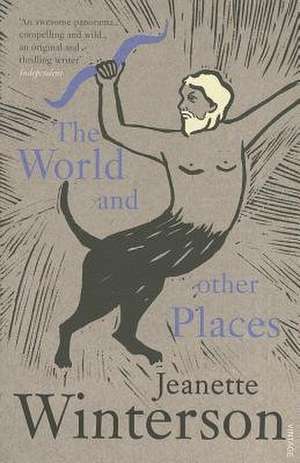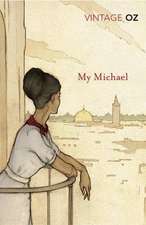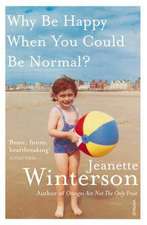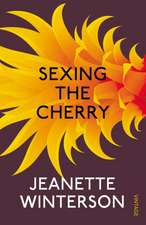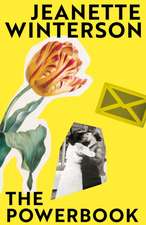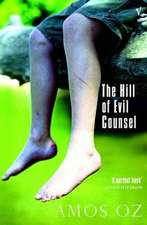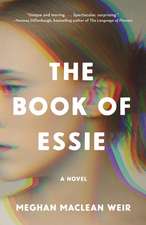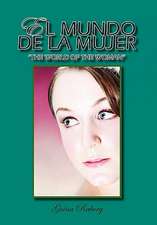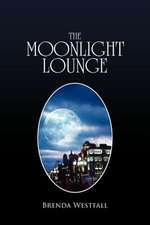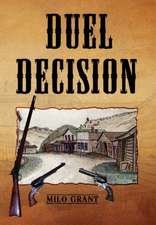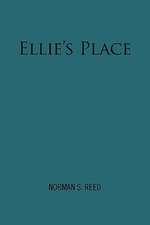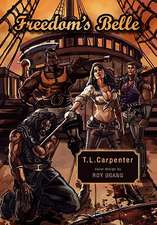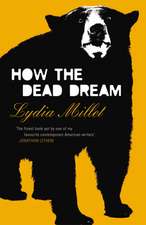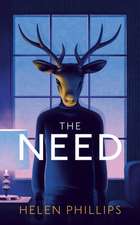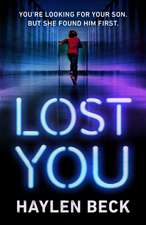The World and Other Places
Autor Jeanette Wintersonen Limba Engleză Paperback – 3 mar 1999
| Toate formatele și edițiile | Preț | Express |
|---|---|---|
| Paperback (2) | 57.39 lei 24-35 zile | +19.18 lei 7-11 zile |
| Vintage Publishing – 3 mar 1999 | 57.39 lei 24-35 zile | +19.18 lei 7-11 zile |
| Vintage Publishing – 31 mai 2000 | 107.92 lei 3-5 săpt. |
Preț: 57.39 lei
Preț vechi: 69.15 lei
-17% Nou
Puncte Express: 86
Preț estimativ în valută:
10.98€ • 11.35$ • 9.14£
10.98€ • 11.35$ • 9.14£
Carte disponibilă
Livrare economică 07-18 martie
Livrare express 18-22 februarie pentru 29.17 lei
Preluare comenzi: 021 569.72.76
Specificații
ISBN-13: 9780099274537
ISBN-10: 0099274531
Pagini: 240
Dimensiuni: 129 x 201 x 22 mm
Greutate: 0.18 kg
Editura: Vintage Publishing
Locul publicării:United Kingdom
ISBN-10: 0099274531
Pagini: 240
Dimensiuni: 129 x 201 x 22 mm
Greutate: 0.18 kg
Editura: Vintage Publishing
Locul publicării:United Kingdom
Extras
When I was a boy I made model aeroplanes.
We never had the money to go anywhere, sometimes we didn't have the money to go to the shop. There were six of us at night in the living room, six people and six carpet tiles. Usually the tiles were laid two by three in a dismal rectangle, but on Saturday night, aeroplane night, we took one each and sat cross legged with the expectation of an Arabian prince. We were going to fly away, and we held on to the greasy underside of our mats, waiting for the magic word to lift us.
Bombay, Cairo, Paris, New York. We took it in turns to say the word, and the one whose word it was, took my model aeroplane and spun it where it hung from the ceiling, round and round our blow-up globe. We had saved cereal tokens for the globe and it had been punctured twice. Iceland was held together by Sellotape and Great Britain was only a rubber bicycle patch on the panoply of the world.
I had memorised the flight times from London Heathrow to anywhere you could guess at in the world. It was my job to announce our flying time, the aircraft data, and to wish the passengers a comfortable trip. I pointed out landmarks on the way and we would lean over the fireplace to take a look at Mont Blanc or crane our necks round the back of the settee to get a glimpse of the Rockies.
Half way through our trip, Mother, who was Chief Steward, swayed down the aisle with cups of tea and toast and Marmite. After that, Dad came forward with next week's jobs around the house scribbled on little bits of paper. We dipped into the pouch, and somebody, the lucky one, would get Duty Free on theirs, and they didn't have to do a thing.
When we reached our destination, we were glad to stand up and stretch our legs. Then my sister gave us each a blind-fold. We put it on, and sat quietly, dreaming, imagining, while one of us started talking about the strange place we were visiting.
How hot it is getting off the plane. Hot and stale like opening the door of a tumble drier. There are no lights to show us where to go. Death will be this way; a rough passage with people we have never met and a hasty run across the tarmac to the terminal building.
Inside, in the day-for-night illumination, a group of Indians were playing cellos. Who are these orchestral refugees? Can it be part of the service? Beyond them, urchins with bare feet are leaping up and down with ragged cardboard signs, each bearing the name of someone more important than ourselves. These are the people who will be whisked away in closed cars to comfortable beds. The rest of us will search for the bus.
Luggage. Heaven or Hell in the hereafter will be luggage or the lack of it. The ones who recognised that love is enough and that possessions are borrowed pastimes, will float free through the exit sign, their arms ready to hug their friends, their toothbrush in their pocket. The ones who stayed up late, gathering and gathering like demented bees, will find that you can take it with you. The joke is that you have to carry it yourself.
Here comes the bus. It has three wheels, maybe four, and the only part noisier than the engine is the horn. All human life is here. I am travelling between a chicken coop and a fortune teller. The chickens peck at my legs and suddenly the fortune teller grabs my palm. She laughs in my face.
'When you grow up you will learn to fly.'
For the rest of the journey I am bitten by mosquitoes.
At last we have reached the Hotel Cockroach. Dusty mats cover the mud floor and the Reception Clerk has an open wound in his cheek. He tells me he was stabbed but not to worry. Then he serves me lukewarm tea and shows me my room. It has a view over the incinerator and is farthest from the bathroom. At least I will not learn to think highly of myself.
In the darkness and the silence I can hear, far below, the matter of life continuing without me. The night-shift. What are they doing, these people who come and go, cleaning, bringing food, wanting money, wanting to fight. What will they eat? Where will they sleep? Do they love someone? How many of them will see morning? Will I?
Dreams. The smell of incense and frangipani. The moon sailing on her back makes white passages on the dun floor. The moon and the white clouds at the window. How many times have I seen it? How many times do I stop and look as if I had never seen it before? Perhaps it is true that the world is made new again every day but our minds are not. The clamp that holds me will not let me go.
During the night a mouse gave birth behind the skirting board.
At the end of my story, my family and I swopped anecdotes and exchanged souvenirs. Later, we retired to bed with the weariness of a traveller's reunion. We had done what the astronauts do, travelled in space that did not belong to us, uncoupled ourselves from time.
That night, I knew I would get away, better myself. Not because I despised who I was, but because I did not know who I was. I was waiting to be invented. I was waiting to invent myself.
The pilot and I went up in the aeroplane. It was a Cessna, modern and beautiful, off white with a blue stripe right round it and a nose as finely balanced as a pedigree muzzle. I wanted to cup it in both hands and say, 'Well done boy.'
In spite of the air conditioned cockpit, overwarm and muzzy in an unexpected economy class way, the pilot had a battered flying jacket stuffed behind his seat. It was authentic, grubby sheepskin and a steel zip. I asked him why he needed it.
'Romance,' he said, grinning. 'Flying is romantic, even now, even so.'
We were under a 747 at the time, and I thought of the orange seats crammed three abreast on either side, and all the odds and ends of families struggling with their plastic trays and beach gear.
'Is that romantic?' I said, pointing upwards.
He glanced out of the reinforced glass.
'That's not flying. That's following the road.'
For a while we travelled in silence. I watched him; strong jaw with necessary stubble. Brown eyes that never left the sky. He was pretending to be the only man in the air. His dream was the first dream, when men in plus fours and motorcycle goggles pedalled with the single mindedness of a circus chimp to get their wooden frames and canvas wings upwards and upwards and upwards. It was a solo experience even when there were two of you.
What did Amy Johnson say? 'If the whole world were flying beside me I would still be flying alone.' Rhetoric, you think, frontier talk. Then you reach your own frontier and it's not rhetoric anymore.
My parents were so proud of me when I joined the Air Force. I stood in our cluttered living room in my new uniform and I felt like an angel on a visit. I felt like Gabriel come to tell the shepherds the Good News.
'Soon you'll have your own wings,' said my mother.
My father had bought a bottle of Scotch.
In my bedroom, the model aeroplanes had been carefully dusted. Sopwith Camel. Spitfire. Tiger Moth. I picked them up one by one and turned over their balsa wood frames and rice paper wings. I never used a kit. What hopes they carried. More than the altar at church. More than a good school report. In the secret places, under the fuselage, stuck to the tail-fin, I had hidden my hopes.
My mother came in. 'Will you take them with you?' I shook my head. I'd be laughed at, made fun of. Yet each of us in our bunks at lights-out would be thinking of model aeroplanes and the things from home we couldn't talk about anymore.
She said, 'I gave them a wipe anyway.'
Bombay. Cairo. Paris. New York. I've been to those places now. The curious thing is that no matter how different they are, the people are all preoccupied with the same things, that is, the same thing; how to live. We have to eat, we want to make money, but in every pause the question returns: How shall I live?
I saw three things that made this clear to me.
The first was a beggar in New York. He was sitting, feet apart, head in hands, on a low wall beside a garage. As I walked by him, he whispered, 'Do you have two dollars?' I gave him the folded bills, and he said, 'Can you sit with me a minute?'
His name was Tony. He was a compulsive gambler trying to go straight. He thought he might land a job on Monday morning if only he could sleep the weekend in a hostel, get some rest, be clean. For a week he had been sleeping by the steam duct of the garage.
I gave him the hostel money and a little more for food and the clenched fist of his body unfolded. He was talkative, gentle. Already in his mind he had the job, was making a go of it, and had met a sweet woman in a snack bar. Was that the gambler in him or ordinary human hope? Already in his mind he was looking past the job and the apartment into the space that had turned him over the wall.
'Nobody used to look at me,' he said. 'Even when I had money, I was one of those guys who get looked through. It's like being a ghost. If no one can see you you're dead. What's the point of trying to live if you are already dead?'
He shook my hand and thanked me. He was going to the hostel before it closed, or maybe he was going to a dog. I can't know. I don't need to know. There's enough I need to know just for myself.
I said there were three things. The second was a dress designer living over her studio in Milan. She was rich, she was important. She liked airmen. I used to sit with her in the studio, she never had time for a meal or a trip somewhere, she ate like an urchin, one leg hooked round her stool, palm full of olives. She spat the stones at her models. We were talking one night and she got angry. She prodded me with the shears she kept on her work table.
'Stop thinking,' she said. 'The more you think, the faster you cut your own throat. What is there to think about? It always ends up the same way. In your mind there is a bolted door. You have to work hard not to go near that door. Parties, lovers, career, charity, babies, who cares what it is, so long as you avoid the door. There are times, when I am on my own, fixing a drink, walking upstairs, when I see the door waiting for me. I have to stop myself pulling the bolt and turning the handle. Why? On the other side of the door is a mirror, and I will have to see myself. I'm not afraid of what I am. I'm afraid I will see what I am not.'
I said there were three things. The third was a woman in the park with her dog. The dog was young. The woman was old. Every so often she took out a bottle of water and a little bowl and gave the dog a drink.
'Come on Sandy,' she'd say, when he'd finished, and they would both disappear into the bushes, the dog's tail bobbing behind.
She was poor, I could see that. Put us side by side and how do we look? I'm six feet tall in a smart airman's uniform and I have a strong grip and steady eyes. She's about five feet high and threadbare. I could lift her with one hand.
But when she met my gaze one day I dropped my eyes and blushed like a teenager. I was walking past her in the opposite direction and I smiled and said, 'How are you?'
She looked at me with eyes that have long since pierced through the cloud cover and as we talked, I realised she was happy. Happy. The kind of happiness that comes from a steadiness inside. This was genuine. This was not someone who had turned away from the bolted door. It was open. She was on the other side.
For some years, early in my Air Force days, I did not bother myself with the single simple question that is the hardest in the world. How shall I live? I was living wasn't I? I was adventure, manliness, action. That's how we define ourselves isn't it?
Then one day I awoke with the curious sensation of no longer being myself. I hadn't turned into a beetle or a werewolf and my friends treated me in the same way as before. I put on my favourite well-worn clothes, bought newspapers, took a holiday, went to Milan, walked in the park. At last I called on the doctor.
'Doctor I'm not myself anymore.'
He asked me about my sex life and prescribed a course of antidepressants.
I went to the library and borrowed books from the philosophy and psychology sections, terrified in case I should be spotted by someone who knew me. I read Jung who urged me to make myself whole. I read Lacan who wants me to accept that I'm not.
None of it helped me. All the time I thought crazily, 'If this isn't me then I must be somewhere else.'
That's when I started travelling so much, left the forces, bought my own plane. Mostly I teach flying now, and sometimes I take out families who have won the First Prize in a packet soup competition. It doesn't matter. I have plenty of free time and I do what I need to do, which is to look for myself.
I know that if I fly for long enough, for wide enough, for far enough, I'll catch a signal on the radar that tells me there's another aircraft on my wing. I'll glance out of the reinforced glass, and it won't be a friendly pilot that I'll see, all stubble and brown eyes. It will be me. Me in the cockpit of that other plane.
I went home to visit my mother and father. I flew over their village, taxied down their road and left the nose of my plane pushed up against the front door. The tail was just on the pavement and I was worried that some traffic warden might issue a ticket for obstruction, so I hung a sign on the back that said 'flying doctor.'
I'm always nervous about going home, just as I am nervous about rereading books that have meant a lot to me.
My parents wanted me to tell them about the places I've been and what I've seen, their eyes were eager and full of life.
Bombay. Cairo. Paris. New York. We have invented them so many times that to tell the truth will be a disappointment. The blow-up globe still hangs over the mantelpiece, its plastic crinkly and torn. The countries of the Common Market are held together with red tape.
We went through my postcards one by one. I gave them presents; a sari for my mother and a Stetson for my father. They are the children now.
Time passes through the clock. It's time for me to leave. They come outside to wave me off.
'It's a lovely plane,' says my mother. 'Does it give you much trouble?'
I rev the engine and the neighbours stand in astonishment in their doorways as the plane gathers speed down our quiet road. A moment before the muzzle breaks through the apostal window in the church, I take off, rising higher and higher, and disappearing into the end stream of the sun.
We never had the money to go anywhere, sometimes we didn't have the money to go to the shop. There were six of us at night in the living room, six people and six carpet tiles. Usually the tiles were laid two by three in a dismal rectangle, but on Saturday night, aeroplane night, we took one each and sat cross legged with the expectation of an Arabian prince. We were going to fly away, and we held on to the greasy underside of our mats, waiting for the magic word to lift us.
Bombay, Cairo, Paris, New York. We took it in turns to say the word, and the one whose word it was, took my model aeroplane and spun it where it hung from the ceiling, round and round our blow-up globe. We had saved cereal tokens for the globe and it had been punctured twice. Iceland was held together by Sellotape and Great Britain was only a rubber bicycle patch on the panoply of the world.
I had memorised the flight times from London Heathrow to anywhere you could guess at in the world. It was my job to announce our flying time, the aircraft data, and to wish the passengers a comfortable trip. I pointed out landmarks on the way and we would lean over the fireplace to take a look at Mont Blanc or crane our necks round the back of the settee to get a glimpse of the Rockies.
Half way through our trip, Mother, who was Chief Steward, swayed down the aisle with cups of tea and toast and Marmite. After that, Dad came forward with next week's jobs around the house scribbled on little bits of paper. We dipped into the pouch, and somebody, the lucky one, would get Duty Free on theirs, and they didn't have to do a thing.
When we reached our destination, we were glad to stand up and stretch our legs. Then my sister gave us each a blind-fold. We put it on, and sat quietly, dreaming, imagining, while one of us started talking about the strange place we were visiting.
How hot it is getting off the plane. Hot and stale like opening the door of a tumble drier. There are no lights to show us where to go. Death will be this way; a rough passage with people we have never met and a hasty run across the tarmac to the terminal building.
Inside, in the day-for-night illumination, a group of Indians were playing cellos. Who are these orchestral refugees? Can it be part of the service? Beyond them, urchins with bare feet are leaping up and down with ragged cardboard signs, each bearing the name of someone more important than ourselves. These are the people who will be whisked away in closed cars to comfortable beds. The rest of us will search for the bus.
Luggage. Heaven or Hell in the hereafter will be luggage or the lack of it. The ones who recognised that love is enough and that possessions are borrowed pastimes, will float free through the exit sign, their arms ready to hug their friends, their toothbrush in their pocket. The ones who stayed up late, gathering and gathering like demented bees, will find that you can take it with you. The joke is that you have to carry it yourself.
Here comes the bus. It has three wheels, maybe four, and the only part noisier than the engine is the horn. All human life is here. I am travelling between a chicken coop and a fortune teller. The chickens peck at my legs and suddenly the fortune teller grabs my palm. She laughs in my face.
'When you grow up you will learn to fly.'
For the rest of the journey I am bitten by mosquitoes.
At last we have reached the Hotel Cockroach. Dusty mats cover the mud floor and the Reception Clerk has an open wound in his cheek. He tells me he was stabbed but not to worry. Then he serves me lukewarm tea and shows me my room. It has a view over the incinerator and is farthest from the bathroom. At least I will not learn to think highly of myself.
In the darkness and the silence I can hear, far below, the matter of life continuing without me. The night-shift. What are they doing, these people who come and go, cleaning, bringing food, wanting money, wanting to fight. What will they eat? Where will they sleep? Do they love someone? How many of them will see morning? Will I?
Dreams. The smell of incense and frangipani. The moon sailing on her back makes white passages on the dun floor. The moon and the white clouds at the window. How many times have I seen it? How many times do I stop and look as if I had never seen it before? Perhaps it is true that the world is made new again every day but our minds are not. The clamp that holds me will not let me go.
During the night a mouse gave birth behind the skirting board.
At the end of my story, my family and I swopped anecdotes and exchanged souvenirs. Later, we retired to bed with the weariness of a traveller's reunion. We had done what the astronauts do, travelled in space that did not belong to us, uncoupled ourselves from time.
That night, I knew I would get away, better myself. Not because I despised who I was, but because I did not know who I was. I was waiting to be invented. I was waiting to invent myself.
The pilot and I went up in the aeroplane. It was a Cessna, modern and beautiful, off white with a blue stripe right round it and a nose as finely balanced as a pedigree muzzle. I wanted to cup it in both hands and say, 'Well done boy.'
In spite of the air conditioned cockpit, overwarm and muzzy in an unexpected economy class way, the pilot had a battered flying jacket stuffed behind his seat. It was authentic, grubby sheepskin and a steel zip. I asked him why he needed it.
'Romance,' he said, grinning. 'Flying is romantic, even now, even so.'
We were under a 747 at the time, and I thought of the orange seats crammed three abreast on either side, and all the odds and ends of families struggling with their plastic trays and beach gear.
'Is that romantic?' I said, pointing upwards.
He glanced out of the reinforced glass.
'That's not flying. That's following the road.'
For a while we travelled in silence. I watched him; strong jaw with necessary stubble. Brown eyes that never left the sky. He was pretending to be the only man in the air. His dream was the first dream, when men in plus fours and motorcycle goggles pedalled with the single mindedness of a circus chimp to get their wooden frames and canvas wings upwards and upwards and upwards. It was a solo experience even when there were two of you.
What did Amy Johnson say? 'If the whole world were flying beside me I would still be flying alone.' Rhetoric, you think, frontier talk. Then you reach your own frontier and it's not rhetoric anymore.
My parents were so proud of me when I joined the Air Force. I stood in our cluttered living room in my new uniform and I felt like an angel on a visit. I felt like Gabriel come to tell the shepherds the Good News.
'Soon you'll have your own wings,' said my mother.
My father had bought a bottle of Scotch.
In my bedroom, the model aeroplanes had been carefully dusted. Sopwith Camel. Spitfire. Tiger Moth. I picked them up one by one and turned over their balsa wood frames and rice paper wings. I never used a kit. What hopes they carried. More than the altar at church. More than a good school report. In the secret places, under the fuselage, stuck to the tail-fin, I had hidden my hopes.
My mother came in. 'Will you take them with you?' I shook my head. I'd be laughed at, made fun of. Yet each of us in our bunks at lights-out would be thinking of model aeroplanes and the things from home we couldn't talk about anymore.
She said, 'I gave them a wipe anyway.'
Bombay. Cairo. Paris. New York. I've been to those places now. The curious thing is that no matter how different they are, the people are all preoccupied with the same things, that is, the same thing; how to live. We have to eat, we want to make money, but in every pause the question returns: How shall I live?
I saw three things that made this clear to me.
The first was a beggar in New York. He was sitting, feet apart, head in hands, on a low wall beside a garage. As I walked by him, he whispered, 'Do you have two dollars?' I gave him the folded bills, and he said, 'Can you sit with me a minute?'
His name was Tony. He was a compulsive gambler trying to go straight. He thought he might land a job on Monday morning if only he could sleep the weekend in a hostel, get some rest, be clean. For a week he had been sleeping by the steam duct of the garage.
I gave him the hostel money and a little more for food and the clenched fist of his body unfolded. He was talkative, gentle. Already in his mind he had the job, was making a go of it, and had met a sweet woman in a snack bar. Was that the gambler in him or ordinary human hope? Already in his mind he was looking past the job and the apartment into the space that had turned him over the wall.
'Nobody used to look at me,' he said. 'Even when I had money, I was one of those guys who get looked through. It's like being a ghost. If no one can see you you're dead. What's the point of trying to live if you are already dead?'
He shook my hand and thanked me. He was going to the hostel before it closed, or maybe he was going to a dog. I can't know. I don't need to know. There's enough I need to know just for myself.
I said there were three things. The second was a dress designer living over her studio in Milan. She was rich, she was important. She liked airmen. I used to sit with her in the studio, she never had time for a meal or a trip somewhere, she ate like an urchin, one leg hooked round her stool, palm full of olives. She spat the stones at her models. We were talking one night and she got angry. She prodded me with the shears she kept on her work table.
'Stop thinking,' she said. 'The more you think, the faster you cut your own throat. What is there to think about? It always ends up the same way. In your mind there is a bolted door. You have to work hard not to go near that door. Parties, lovers, career, charity, babies, who cares what it is, so long as you avoid the door. There are times, when I am on my own, fixing a drink, walking upstairs, when I see the door waiting for me. I have to stop myself pulling the bolt and turning the handle. Why? On the other side of the door is a mirror, and I will have to see myself. I'm not afraid of what I am. I'm afraid I will see what I am not.'
I said there were three things. The third was a woman in the park with her dog. The dog was young. The woman was old. Every so often she took out a bottle of water and a little bowl and gave the dog a drink.
'Come on Sandy,' she'd say, when he'd finished, and they would both disappear into the bushes, the dog's tail bobbing behind.
She was poor, I could see that. Put us side by side and how do we look? I'm six feet tall in a smart airman's uniform and I have a strong grip and steady eyes. She's about five feet high and threadbare. I could lift her with one hand.
But when she met my gaze one day I dropped my eyes and blushed like a teenager. I was walking past her in the opposite direction and I smiled and said, 'How are you?'
She looked at me with eyes that have long since pierced through the cloud cover and as we talked, I realised she was happy. Happy. The kind of happiness that comes from a steadiness inside. This was genuine. This was not someone who had turned away from the bolted door. It was open. She was on the other side.
For some years, early in my Air Force days, I did not bother myself with the single simple question that is the hardest in the world. How shall I live? I was living wasn't I? I was adventure, manliness, action. That's how we define ourselves isn't it?
Then one day I awoke with the curious sensation of no longer being myself. I hadn't turned into a beetle or a werewolf and my friends treated me in the same way as before. I put on my favourite well-worn clothes, bought newspapers, took a holiday, went to Milan, walked in the park. At last I called on the doctor.
'Doctor I'm not myself anymore.'
He asked me about my sex life and prescribed a course of antidepressants.
I went to the library and borrowed books from the philosophy and psychology sections, terrified in case I should be spotted by someone who knew me. I read Jung who urged me to make myself whole. I read Lacan who wants me to accept that I'm not.
None of it helped me. All the time I thought crazily, 'If this isn't me then I must be somewhere else.'
That's when I started travelling so much, left the forces, bought my own plane. Mostly I teach flying now, and sometimes I take out families who have won the First Prize in a packet soup competition. It doesn't matter. I have plenty of free time and I do what I need to do, which is to look for myself.
I know that if I fly for long enough, for wide enough, for far enough, I'll catch a signal on the radar that tells me there's another aircraft on my wing. I'll glance out of the reinforced glass, and it won't be a friendly pilot that I'll see, all stubble and brown eyes. It will be me. Me in the cockpit of that other plane.
I went home to visit my mother and father. I flew over their village, taxied down their road and left the nose of my plane pushed up against the front door. The tail was just on the pavement and I was worried that some traffic warden might issue a ticket for obstruction, so I hung a sign on the back that said 'flying doctor.'
I'm always nervous about going home, just as I am nervous about rereading books that have meant a lot to me.
My parents wanted me to tell them about the places I've been and what I've seen, their eyes were eager and full of life.
Bombay. Cairo. Paris. New York. We have invented them so many times that to tell the truth will be a disappointment. The blow-up globe still hangs over the mantelpiece, its plastic crinkly and torn. The countries of the Common Market are held together with red tape.
We went through my postcards one by one. I gave them presents; a sari for my mother and a Stetson for my father. They are the children now.
Time passes through the clock. It's time for me to leave. They come outside to wave me off.
'It's a lovely plane,' says my mother. 'Does it give you much trouble?'
I rev the engine and the neighbours stand in astonishment in their doorways as the plane gathers speed down our quiet road. A moment before the muzzle breaks through the apostal window in the church, I take off, rising higher and higher, and disappearing into the end stream of the sun.
Notă biografică
Jeanette Winterson lives in the English countryside outside London.
Recenzii
"A brilliant collection. . .speculative, philosophical and surreal. . . . You will fall in love with this writer." --The Baltimore Sun
"Winterson is a grand warrior. . .a modern writer, a modern thinker. . . . Her images are fantastic." --Los Angeles Times
"Like a literary periscope scanning island after island in the sea of Winterson's imagination." --Boston Book Review
"That Winterson is an original and important writer is surely by now beyond question. . . . One of the pleasures of this collection is that it allows the reader to map the gradual evolution of her writing." --The Boston Globe
"Winterson is a grand warrior. . .a modern writer, a modern thinker. . . . Her images are fantastic." --Los Angeles Times
"Like a literary periscope scanning island after island in the sea of Winterson's imagination." --Boston Book Review
"That Winterson is an original and important writer is surely by now beyond question. . . . One of the pleasures of this collection is that it allows the reader to map the gradual evolution of her writing." --The Boston Globe
